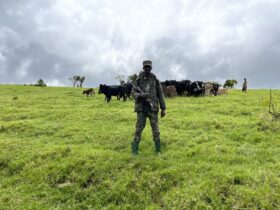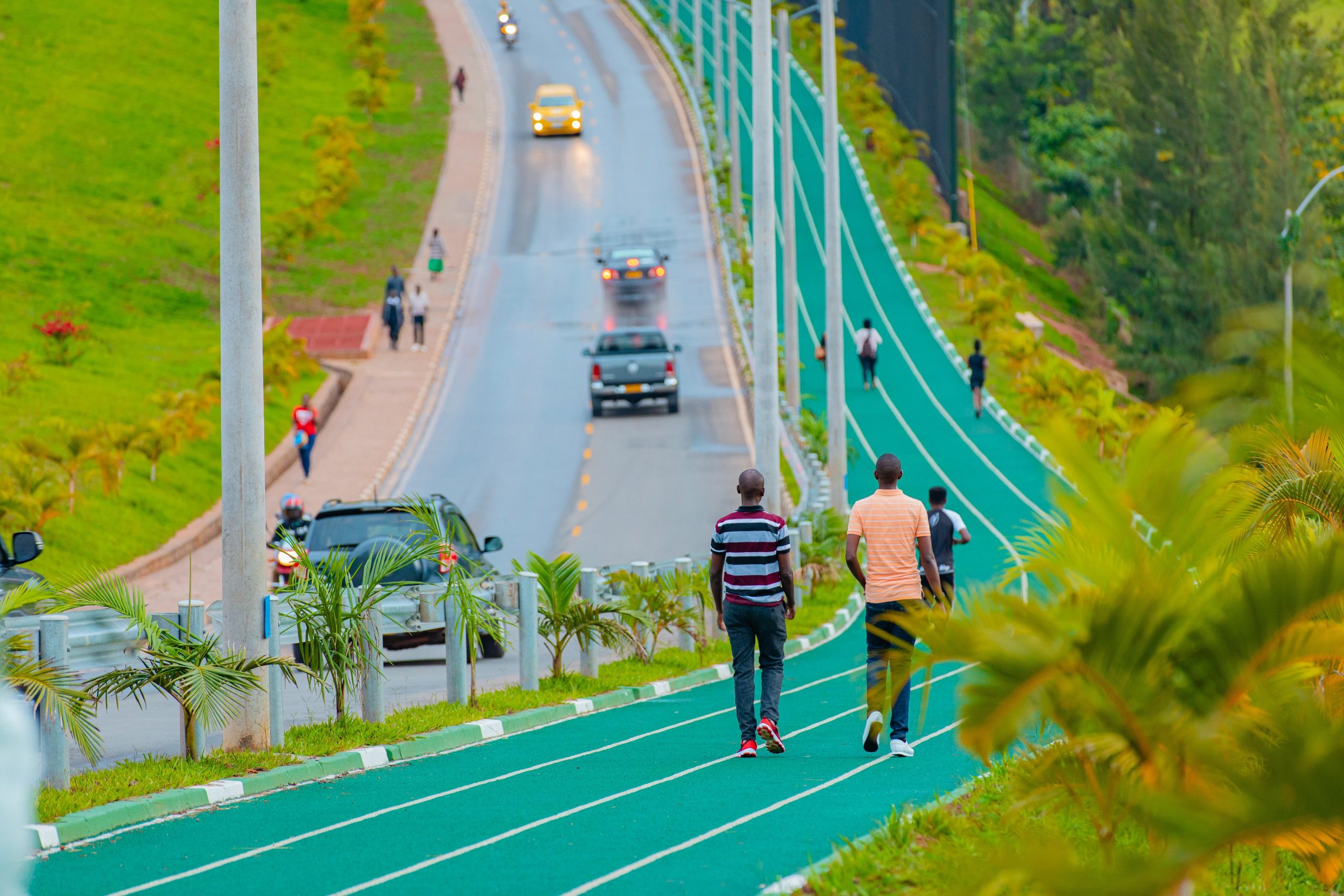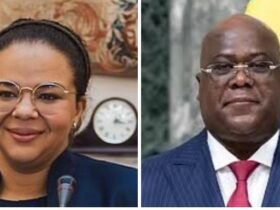This is one attempted answer to my last post: Africa of tomorrow: So many questions left unanswered
Ubuntu: Africa of yesterday, the world of tomorrow..
Ubuntu is an African concept of fraternity and humanness. The word has the same meaning across African languages. From Zulu to Kiswahili, Kinyarwanda, Lingala and Luganda, etc.
In his book, No Future without Forgiveness, Archbishop Desmond Tutu speaks of Ubuntu in these words: “‘when we [Africans, Zulus] want to give high praise to someone we say, ‘Yu, u nobuntu’; ‘Hey, so-and-so has ubuntu.’ Then you are generous, you are hospitable, you are friendly and caring and compassionate. You share what you have. It is so to say, ‘My humanity is inextricably bound up in yours.’ He proceeds: ‘we belong to a bundle of life.’ We say, ‘A person is a person through other persons’
In Rwanda, when we say, ‘ufite ubuntu’, we mean the same thing as in Zulu, literally, semantically and ideologically. Why is it then, that Rwandan ancestors reasoned exactly in the same way as Zulu Ancestors? And Congolese, and Nigerians, etc. This reality suggests that, as Africans we are one nation after all; bound by the principle of humanness: ‘Ubuntu’
This concept is the cornerstone for the ‘ujamaa’ in Tanzania, ‘Harambee’ in Kenya, ‘Teranga’ in Senegal, ‘Gada’ in Ethiopia, ‘Umuganda’ and the most recent: ‘Ndi umunyarwanda’ in Rwanda, etc.
These home-grown, yet not insular concepts, underpin Africa’s identity of cohesion, fraternity and conflict management. In other words: this is what defines Africa: unity in diversity; generosity and acceptance of the other.
Africans considered that one draws one’s relevance, power and survival in numbers. A human’s survival is attached to kin, family, clan and nation’s survival at large. Many African conquerors sought to marry women from potentially antagonistic clans as a measure to establish inter-ethnic bonds and mitigate inter-clans’ conflicts.
In the ‘Gada’ government system practiced in the Abyssinia Empire by the Oromo community; violations of rights were handled communally. The deeds of one affected all. The guilt of a kin brought shame to all kinsmen, and subsequent appeasements were handled by all. To this day in the Somali communities, cases of homicide are handled by the entire clan. Each family, member of the clan, contribute to the agreed compensation ; usually fixed at 100 heads of camels for one life lost, offered as a gesture of allegiance, reprieve and restoration – to avert circles of violence.
These are some of the many measures used by African elders to negotiate human rights, while maintaining traditional bonds across ethnic lines, to ultimately foster peace in the land.
In ancient Africa, reconciliation and conflict management were the only infrastructures to enforce individual security. Indeed there was no police and prisons, nor electric fences. People lived in grass-thatched houses. If a person meant harm to another, he had only to strike a spear from outside the hut while his victim slept. This though, did not generally occur, as it was the duty of the community at large to safeguard every one of its members by addressing individual differents in an open public Barraza – what we call in Rwanda, the Gacaca.
Rwanda as we know it, is a product of Ubuntu. Having descended in the depth of human tragedy, it managed to harness many of the traditional, African mores that stemed from Ubuntu to leverage both unity and reconciliation and community welfare.
So this story aims to emphasize our belief in the healing power of oneness.
President Paul Kagame reminded this in his opening Remarks as Rwanda hosted the African Union just the other day : ‘We believe that a Rwandan is just an African from a particular place. The tissue of brotherhood and sisterhood cannot be amputated by lines drawn on a map in another century.’
Predators to African peace structures: the genesis of conflict
In the circle of Kingdoms, while others sought to conquer and to prosper, there was one King whose role was to entertain the flame that brought together the Banyarwanda (Umwami w’Igicaniro). The last monarch to hold that role was King Yuhi V Musinga. He knew that Western religion would be a source of divide among his people and refused to be baptized. He was exiled by Belgian catholic priests to Eastern Congo and rested there; that was the beginning of the preparation of the Genocide against the Tutsi.
‘We need to use our processes to achieve the aim of assisting humanity, as opposed to preserving our processes at the expense of humanity.’ (Lt. Gen. R Dallaire)
Africa’s ubuntu, the foundation of our peace-building methods was devastatingly affected by religion, colonialism and neo-colonialism; leading to everlasting conflicts around the continent – still to date.
The advent of foreign religions, in Africa, replaced the esoteric codes, that bound the people to together and to the Kings, with cateschism. Tragedies visited us since…
While struggles of power and concur always existed in Africa, they did respect humanitarian law ; they did not, for instance, affect women and children.
Indeed, in an increasingly divided world, by upholding this principle, Africa has a lot to offer
Indeed, the world’s as we know it today, was highly inspired by both concepts of communism and capitalism; two social, economic and political discourses that were conceived, discussed and espoused by countries in the east and the west, which had time to shape their societies and systems to either of these models.
This was being done by both worlds with no consideration of Africans, most of whom were still under the yoke of colonization; a typical way of dealing with Africa since time immemorial. No doubt around the table, were some of the colonialists who claimed to ‘know’ Africans and speak for Africans…
In an interview, Jerry Rawlings, Ghana’s former president explains: ‘during the cold war, we were caught up in a cross fire between the east and the west to such an extend that it was difficult for us to even be Africans…’
Alas, the cold war ended with the defeat of communism. And capitalism proceeded to shape the world in its image. Margaret Thatcher, former Prime Minister of the United Kingdom, once declared: ‘there is no such thing as society. There are individual men and women, and there are families. Such an insular and egotistic worldview, from a person once considered as the most powerful woman on the planet.
This individualistic worldview purported by neo-liberalism, was somewhat at odds with the values held strongly on the Ubuntu continent. The concept: everyone for himself and God above us all, is alien to Africa, and was thus bound to clash with the African concept of: ‘I am, because you are…’ Indeed the two proverbs cannot be further apart.
The fact that African nations have not thrived in the current international world order is perhaps because it is dispensed in a code system that is not suitable for African culture, traditions and identity.
Democracy was brought to Africa, in the same package as colonialism and religion. At each occasion, African ways were deemed savage, ungodly and backward, before being swiftly set aside by the ways of the occupant of the time.
The African continent, whose social structures are based on kinship, lineage and customary allegiance; whose peoples’ most basic rights, such as the right to food, shelter, health and education, had not been guaranteed, had no chance of succeeding in such world order.
At first, prioritising self-determination was welcomed, amidst African independence and struggles for self-determination. African priorities were to acquire first class status and citizenship; not being treated as slaves, colonized, occupied or segregated.
That time, as far as Africa is concerned is obsolete. Since independence was achieved, new forms of oppression and suffering have emerged. The creation of social classes and their use to people’s exploitation has led to chronicle poverty and disparity; all ingredients of conflict.
Today as we face global crisis, where we are all shocked and hurting from the pointless suffering being caused by terrorism, war, poverty and now Corona Virus around the world. No continent is spared, no nation is spared. Citizens of the world have a historical duty to unite – and not play in the hand of their crisis which they face.
In ‘Newsroom’ a popular television sitcom, star character Will Macavoy (Jeff Daniels) announces one of the episoded in this way : ‘war demands sacrifice, sometimes of liberty, sometimes of livelihood and sometimes of life. But does it require us to abandon the principles for which we are fighting and inch by inch resemble more the enemy we fight ? As Alfred Hawthorn once said, it is easier to fight for one’s principles than to live up to them ?
I will end with another quote from that rich, enthousiastic speech of President Kagame : ‘the concept of unity is what anchors human diversity in the bedrock of universal values whenever we gather on the basis of what unites us, there is a peaceful solution to every problem.
Belief in the healing power of unity is the defining virtue of African political culture. indeed in an increasingly divided world by upholding this principle Africa has a lot to offer.
Then unity of our continent with an emplashsis on integration among other things should never be a subject to preconditions or exceptions because lasting solutions always involve everyone’
He was inspired… As a son of Africa, a son of the new Rwanda, I believe, I know ; the cure to world’s suffering is ubuntu…
This piece is an extract from my book: ‘Advocacy in Sub-Saharan Africa’. Pretoria, 2012.














Leave a Reply